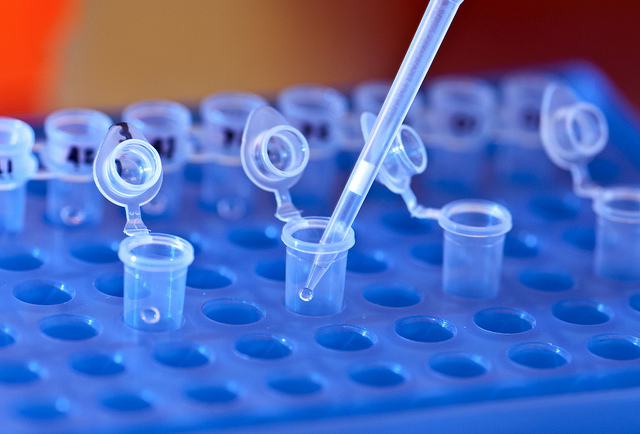Government using ancestry websites to deport immigrants: lawyer, court documents
By Emanuela Campanella,
Global News [Cites CGS' Katie Hasson]
| 11. 01. 2018
The Canadian Border Services Agency is collecting the DNA of immigrants and using ancestry websites to find long-lost family members in order to establish nationalities.
“CBSA has said that they are using genetic profiling and uploading that information to websites to assist in their investigations for deportation,” Toronto immigration lawyer David Cote told Global News.
Cote says he is aware of several cases in which the federal agency has utilized ancestry websites to assist in their cases. Court documents obtained by Global News shows a CBSA representative admitting to using familytreedna.com to contact the long-lost cousins of Franklin Godwin, who was accepted as a refugee from Liberia and was granted permanent residency in 1996.
“One of the means they decided to use was to take a genetic sample from Mr. Godwin and to upload it onto a website to see if they would be able to match him with anybody,” Cote says.
“Doing that, they were hoping to be able to find where he was from. The idea being that if we were able to find family members, those family...
Related Articles
By Diaa Hadid and Shweta Desai, NPR | 01.29.2026
MUMBRA, India — The afternoon sun shines on the woman in a commuter-town café, highlighting her almond-shaped eyes and pale skin, a look often sought after by couples who need an egg to have a baby.
"I have good eggs,"...
By George Janes, BioNews | 01.12.2026
A heart attack patient has become the first person to be treated in a clinical trial of an experimental gene therapy, which aims to strengthen blood vessels after coronary bypass surgery.
Coronary artery bypass surgery is performed to treat...
By Staff, ScienceDaily | 01.05.2026
Scientists at UNSW Sydney have developed a new form of CRISPR technology that could make gene therapy safer while also resolving a decades-long debate about how genes are switched off. The research shows that small chemical markers attached to DNA
...
Following a long-standing CGS tradition, we present a selection of our favorite Biopolitical Times posts of the past year.
In 2025, we published up to four posts every month, written by 12 authors (staff, consultants and allies), some in collaboration and one simply credited to CGS.
These titles are presented in chronological order, except for three In Memoriam notices, which follow. Many more posts that are worth your time can be found in the archive. Scroll down and “VIEW...




